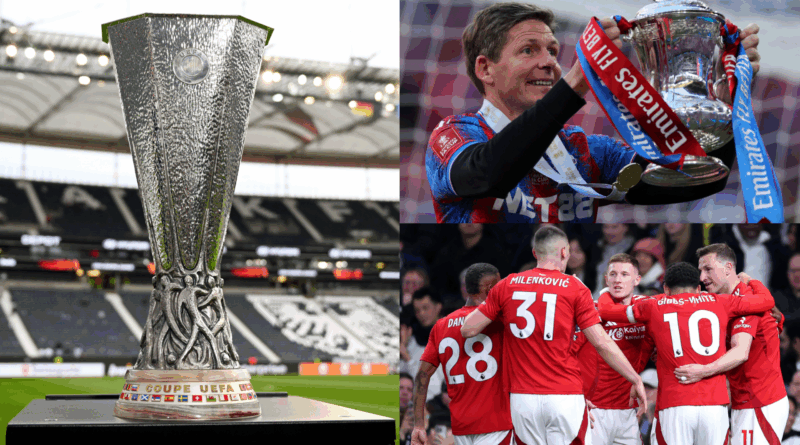Crystal Palace Europa League Appeal Rejected Amid Ownership Rules
Crystal Palace’s Europa League Hopes Dashed by UEFA Expulsion
Crystal Palace Europa League Disqualification Confirmed
Crystal Palace Europa League expulsion has been officially upheld following a failed appeal to the Court of Arbitration for Sport (CAS). The Eagles, who secured their first-ever major trophy by winning the 2025 FA Cup, had initially qualified for European competition. However, due to UEFA’s stringent multi-club ownership regulations, Palace will not feature in the 2025/26 Europa League campaign—a decision that has significant implications for both the club and English football.
Multi-Club Ownership Rules Affect Palace’s European Ambitions
The primary issue revolves around Crystal Palace’s ownership structure, which shares links with other European clubs. UEFA’s regulations prohibit teams under the same ownership umbrella from competing in the same tournament to ensure the integrity of its competitions. Despite Palace’s efforts to overturn the decision, their legal challenge was dismissed, confirming their expulsion from Europe’s second-tier competition.
Conference League Beckons for Crystal Palace
Instead of the Europa League, the South London club must now settle for a place in the UEFA Conference League. This outcome is a blow for Palace, who had hoped to build on their FA Cup triumph by competing at a higher European level. The club’s management expressed disappointment but affirmed their commitment to making the most of their Conference League opportunity.
Nottingham Forest to Benefit from Palace’s Setback
With Crystal Palace excluded, Nottingham Forest stands to benefit by stepping into the vacant Europa League spot. Forest, who narrowly missed European qualification last season, will now prepare for an unexpected challenge on the continental stage. This fortunate turn could have significant implications for both the club’s finances and its fanbase.
UEFA’s Stance on Multi-Club Ownership
UEFA remains steadfast in enforcing multi-club ownership rules, determined to preserve the fairness and credibility of their competitions. The ruling underscores the complexities facing modern football, with investment groups increasingly acquiring stakes in multiple teams across Europe. As clubs seek new revenue streams, such regulations are likely to remain a contentious issue for years to come.
What This Means for Crystal Palace and English Football
Crystal Palace’s Europa League exclusion is a sobering reminder of the regulatory hurdles posed by modern football’s financial landscape. While the club will compete in the Conference League, missing out on the Europa League’s prestige and financial rewards will sting. For Palace supporters, the focus now shifts to making a mark in Europe’s tertiary competition and ensuring the club remains compliant with evolving UEFA rules.
Opinion: A Missed Opportunity for Palace and a Lesson for All
Ultimately, the Crystal Palace Europa League expulsion serves as a cautionary tale for English clubs with complex ownership structures. While rules are in place to maintain the sport’s integrity, they can also inadvertently punish ambitious teams. As Palace regroups for the Conference League, it is essential for clubs to strike a balance between investment ambitions and regulatory compliance. For more news on evolving football stories and the latest updates, visit for more news.
Your global gateway to nonstop football coverage:
News Goal
Share this content:
